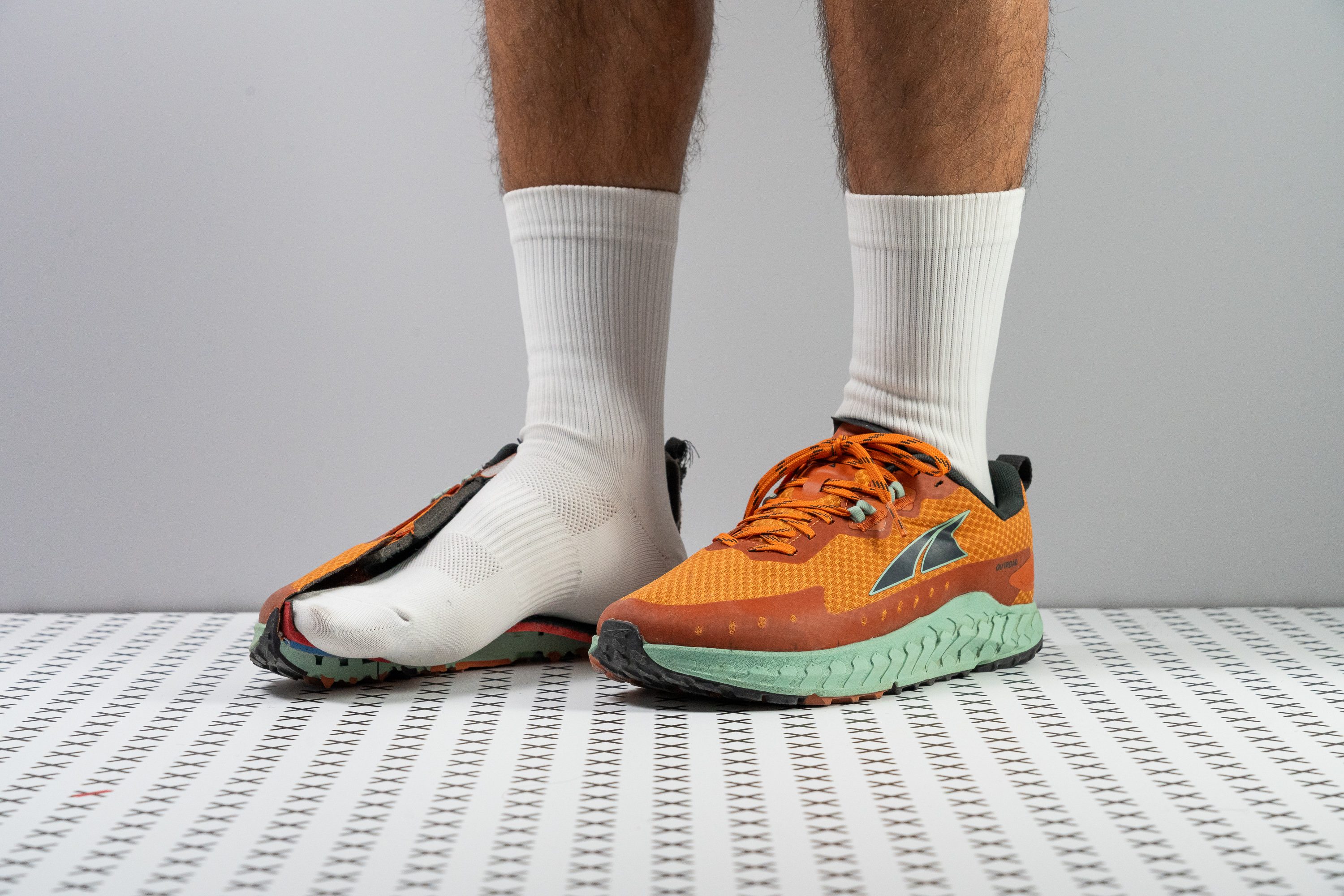Our verdict
- Top pick in best zero drop running shoes (2023)
Pros
- Great on roads and trails
- Pliable upper
- Amazing outsole durability
- Comfy padding
- Less bulky than other Altras
- Low stack
- Doubles as a travelling shoe
- Appealing design
Cons
- Toebox is not Altra-wide
- Breaking-in needed
Audience verdict
Comparison
The most similar running shoes compared
+ + Add a shoe | |||||
|---|---|---|---|---|---|
| Audience score | 81 Good! | 80 Good! | 81 Good! | 90 Superb! | |
| Price | £125 | £135 | £115 | £200 | |
| Trail terrain | Light | LightModerate | Light | Light | |
| Shock absorption | - | Moderate | - | Moderate | |
| Energy return | - | Low | - | High | |
| Arch support | Neutral | Neutral | Neutral | Neutral | |
| Weight lab Weight brand | 10.1 oz / 287g 10.7 oz / 303g | 9.5 oz / 269g 9.8 oz / 277g | 9.2 oz / 261g 10.7 oz / 303g | 9.1 oz / 259g 9.5 oz / 270g | |
| Drop lab Drop brand | 0.1 mm 0.0 mm | -0.1 mm 0.0 mm | 0.6 mm 0.0 mm | 0.3 mm 8.0 mm | |
| Strike pattern | Mid/forefoot | Mid/forefoot | Mid/forefoot | Mid/forefoot | |
| Size | Slightly small | Half size small | Slightly small | Slightly large | |
| Midsole softness | Balanced | Balanced | Balanced | Balanced | |
| Difference in midsole softness in cold | Normal | Small | Normal | Small | |
| Toebox durability | - | Good | Decent | Good | |
| Heel padding durability | - | Decent | Bad | Good | |
| Outsole durability | - | Good | Bad | Decent | |
| Breathability | Moderate | Moderate | Warm | Moderate | |
| Width / fit | Medium | Wide | Medium | Medium | |
| Toebox width | Medium | Wide | Wide | Narrow | |
| Stiffness | Stiff | Stiff | Stiff | Moderate | |
| Torsional rigidity | Moderate | Stiff | Moderate | Stiff | |
| Heel counter stiffness | Flexible | Moderate | Flexible | Flexible | |
| Lug depth | 2.3 mm | 3.0 mm | 1.5 mm | 2.5 mm | |
| Heel stack lab Heel stack brand | 25.1 mm 27.0 mm | 28.6 mm 29.0 mm | 23.8 mm 27.0 mm | 30.6 mm 38.0 mm | |
| Forefoot lab Forefoot brand | 25.0 mm 27.0 mm | 28.7 mm 29.0 mm | 23.2 mm 27.0 mm | 30.3 mm 30.0 mm | |
| Widths available | Normal | Normal | Normal | Normal | |
| Season | All seasons | All seasons | All seasons | All seasons | |
| Removable insole | ✓ | ✓ | ✓ | ✓ | |
| Orthotic friendly | ✓ | ✓ | ✓ | ✓ | |
| Ranking | #587 Bottom 14% | #320 Bottom 16% | #315 Bottom 17% | #76 Top 20% | |
| Popularity | #533 Bottom 21% | #146 Top 39% | #282 Bottom 26% | #177 Top 47% |
Size and fit
Size
Altra Outroad fits slightly small (32 votes).
Who should buy Altra Outroad
Buy it if you want a shoe that can be worn for almost every run. Its versatility, comfort, and low-to-the-ground style make it ideal for daily training.
It is also an excellent option for longer sessions on gravel, single-track, rocks, and pavement.
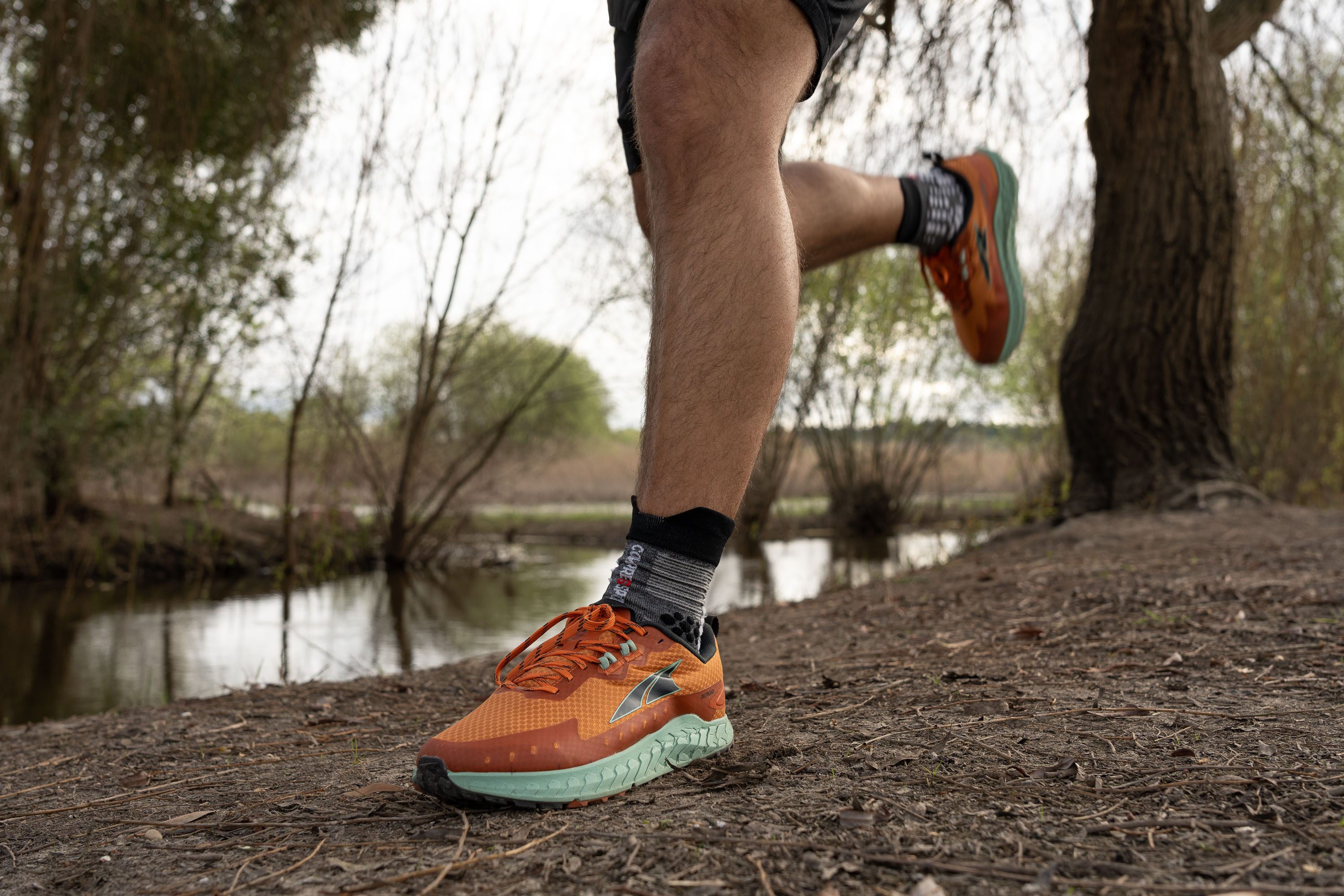
If you are a beginner, remember that this is a zero-drop shoe and a gradual approach is always recommended.
Who should not buy it
Look elsewhere if you:
- like the classic Altra’s width. We recommend the Altra Lone Peak 6 instead.
- want a shoe that doesn’t need breaking in. The Altra Superior 6 is ready out of the box based on our wear tests.
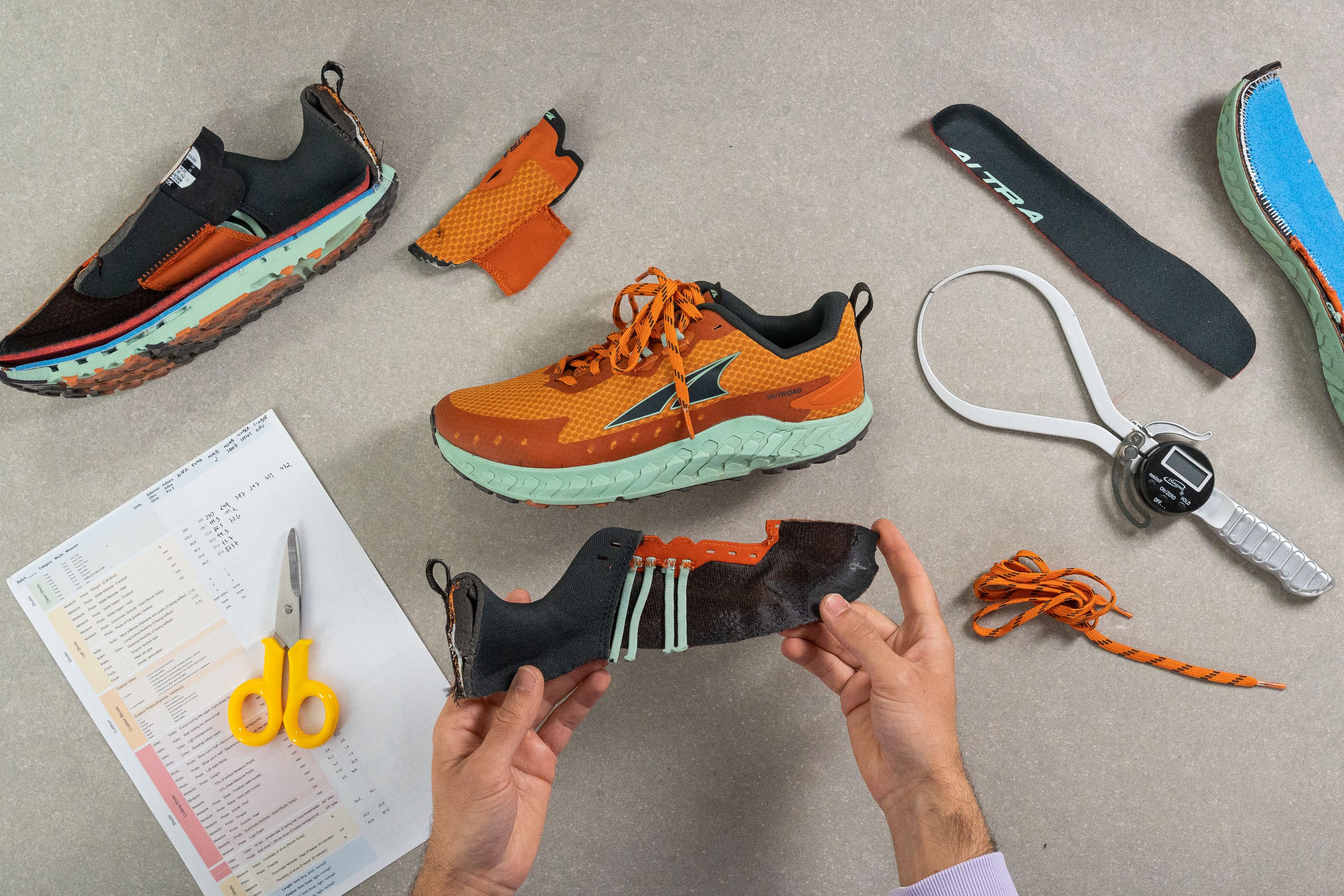
Upper is great on the Outroad
We found the shoe's upper to be well-crafted and really breathable, and we had no issues with our feet getting too warm.
Based on our breathability test, the Outroad scored 4 out of 5, which means it is an airy shoe indeed.
We use a smoke-pumping machine and cover up the shoe mouth entirely so that the smoke is only able to escape through the upper.
The transparency test seen below also confirms that the upper is airy. As you can see, quite a lot of light gets through the mesh.
Altra Outroad is the outsider of the family
Altra says the fit of this shoe is slim. What this means is that this shoe doesn’t have the typical Altra’s very wide toebox. However, if you are not used to the brand’s usual width, we can guarantee that you will still find it accommodating and somewhat roomy compared to other brands.
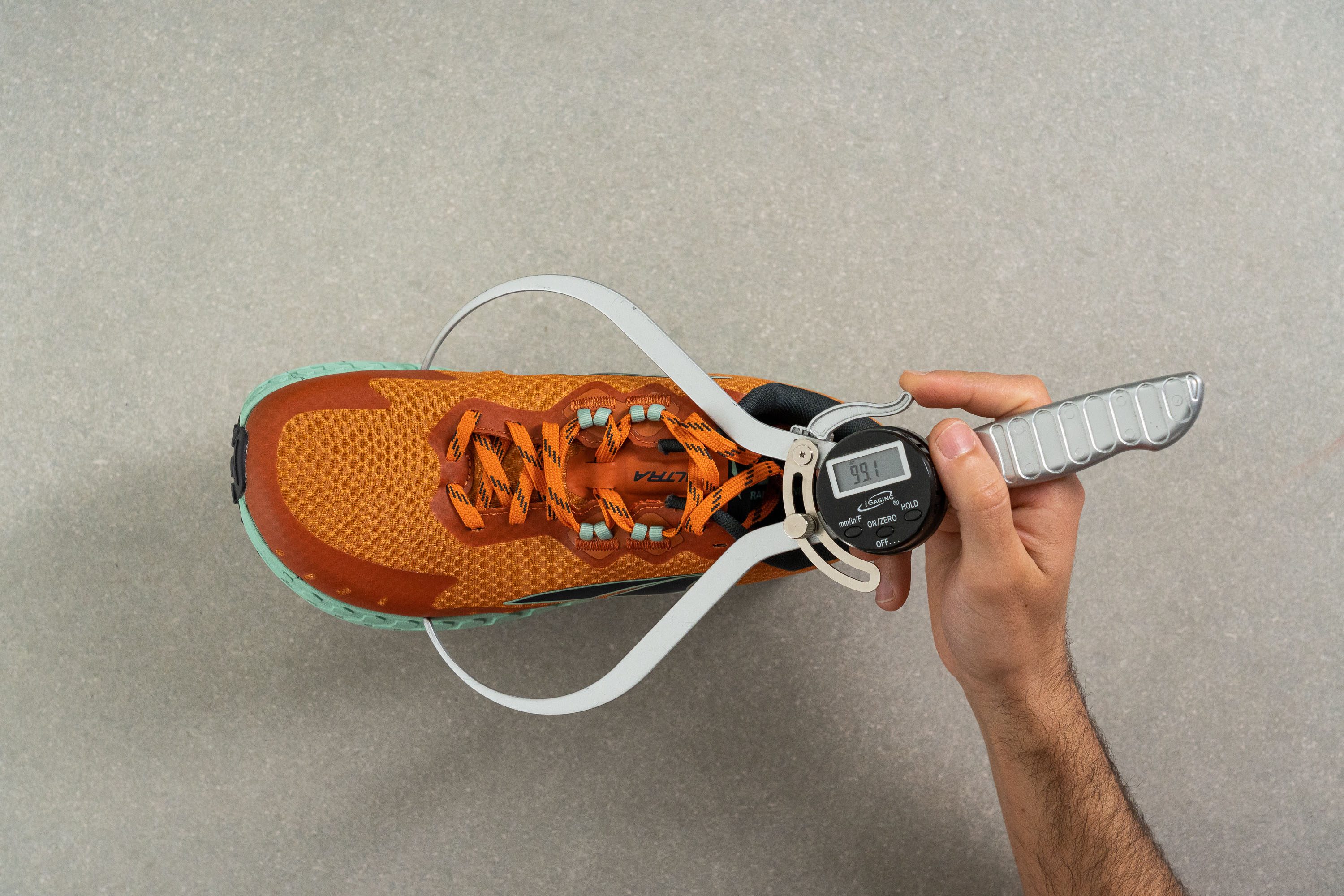
We measured the widest part of the shoe's forefoot with a calliper: it's 99.1 mm, which corresponds to medium width (the average for trail running shoes is 98.9 mm). After wearing the shoe ourselves, we can confirm that the shoe did not feel tight at all, it was actually a bit loose.
Thumbs up for the ride
Running in the Outroad on both trails and roads was a blast! The shoe's ride was particularly smooth, soft, and responsive.
According to our durometer, the Altra Outroad has a balanced midsole. The tool reported a figure of 29.5 HA, which is very close to the average for trail running shoes (neither too soft nor firm).
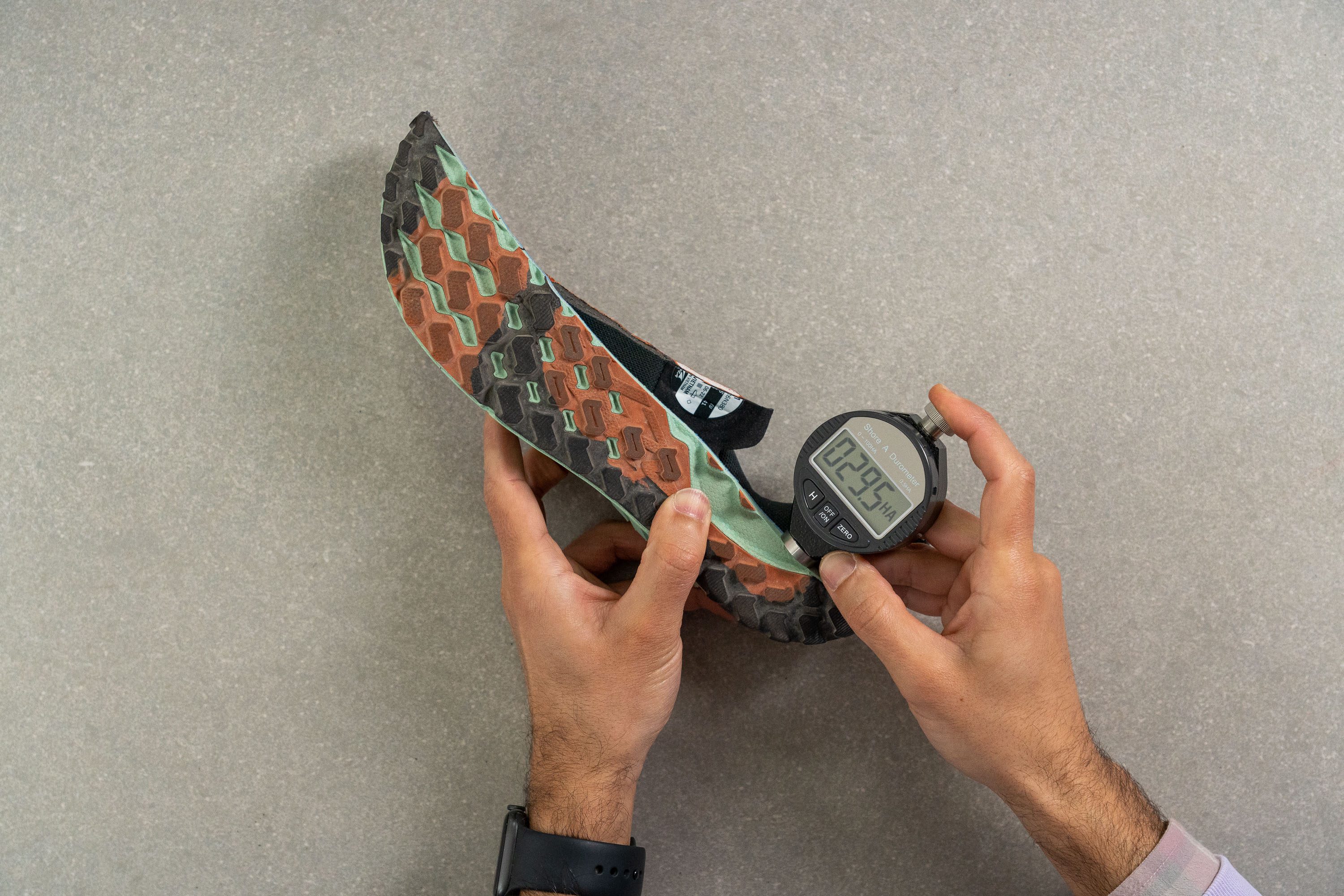
The stack height we measured in the lab confirms that the shoe is quite low to the ground compared to most trail running shoes (the heel stack is only 25.1 mm, whereas the average is 31.7 mm).
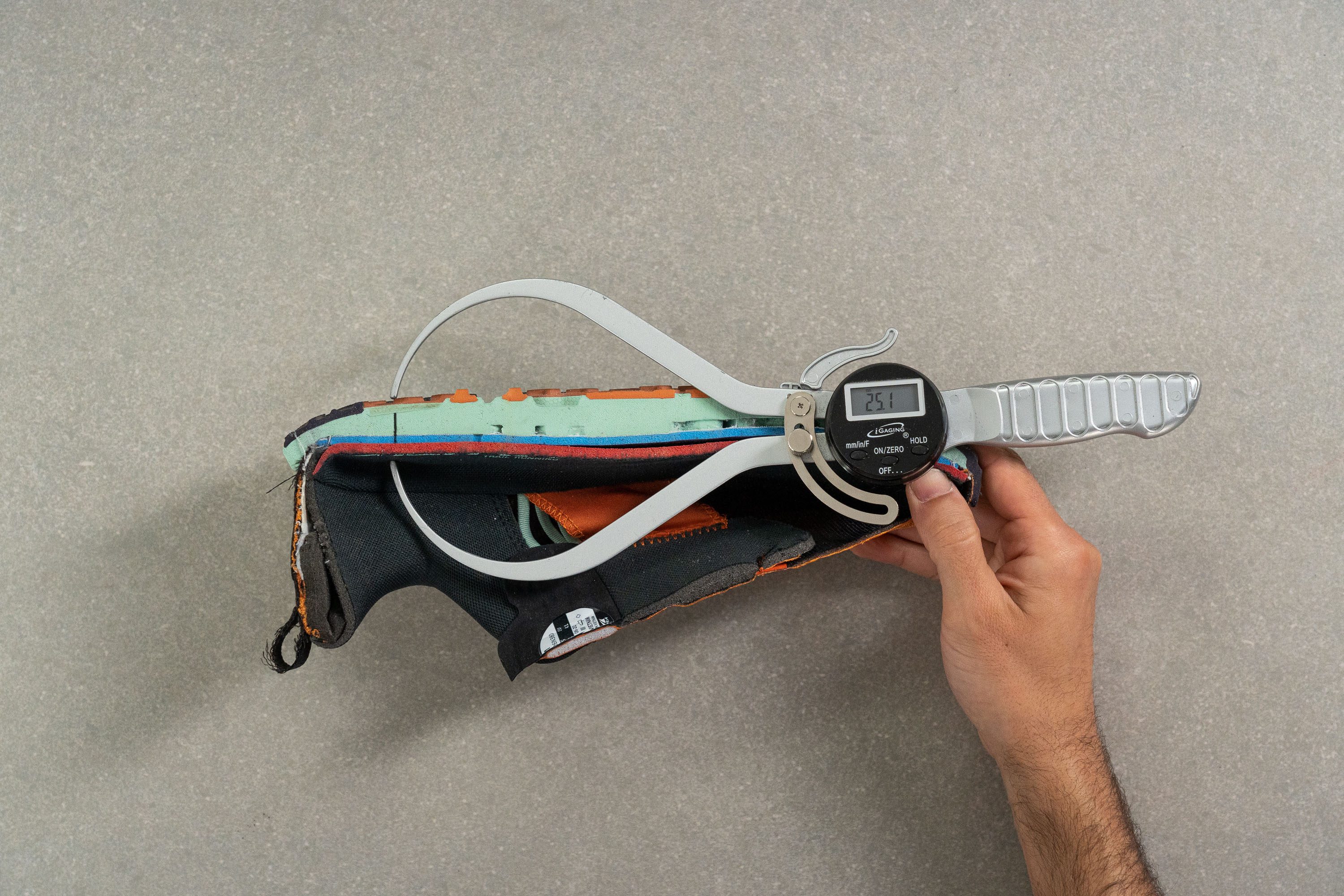
The height stack at the forefoot is 25 mm, exactly like the heel's, as this is a zero-drop shoe.
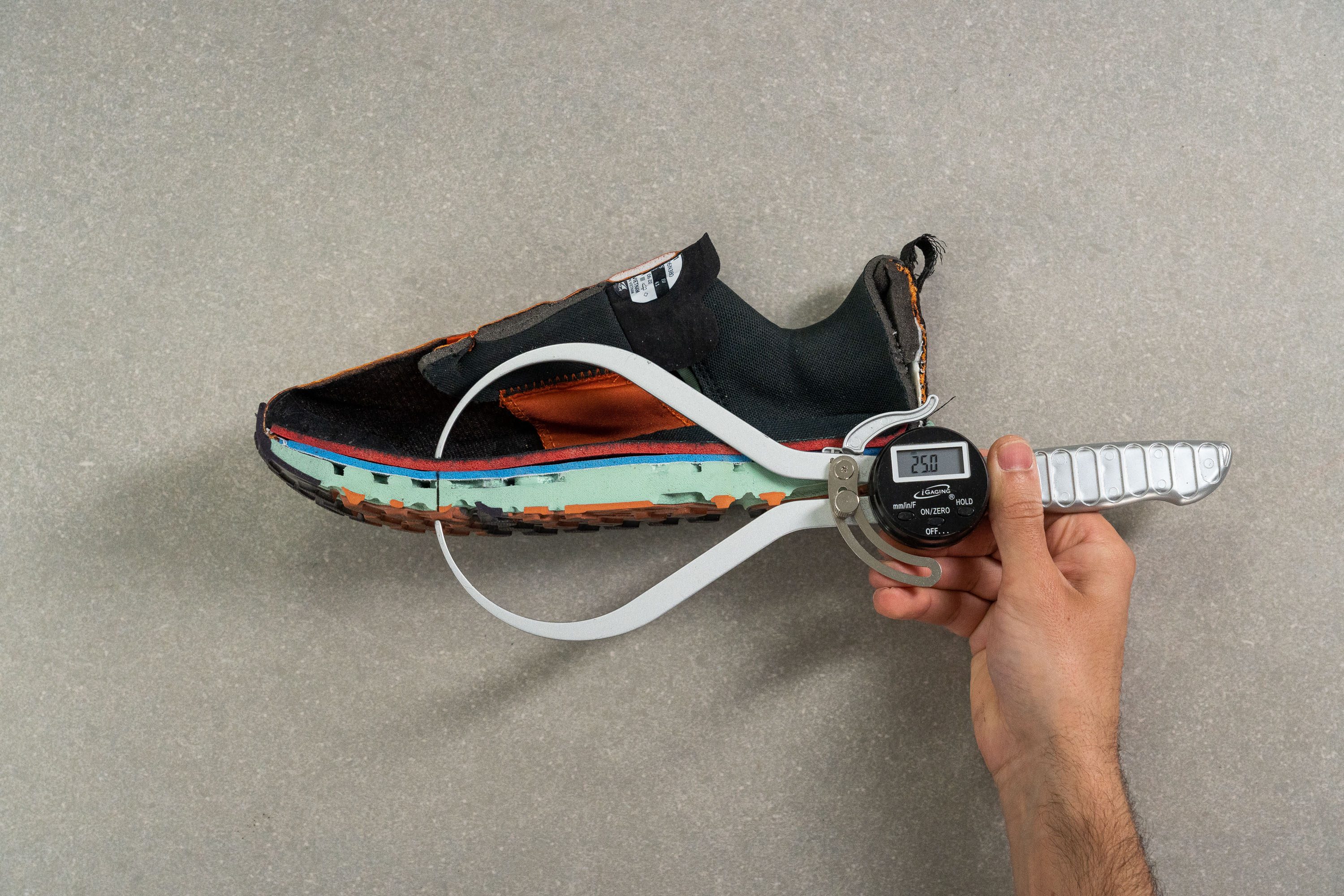
The insole of the Outroad has a thickness of 4.1 mm, just slightly thinner than the average for trail running shoes, which is 4.6 mm.
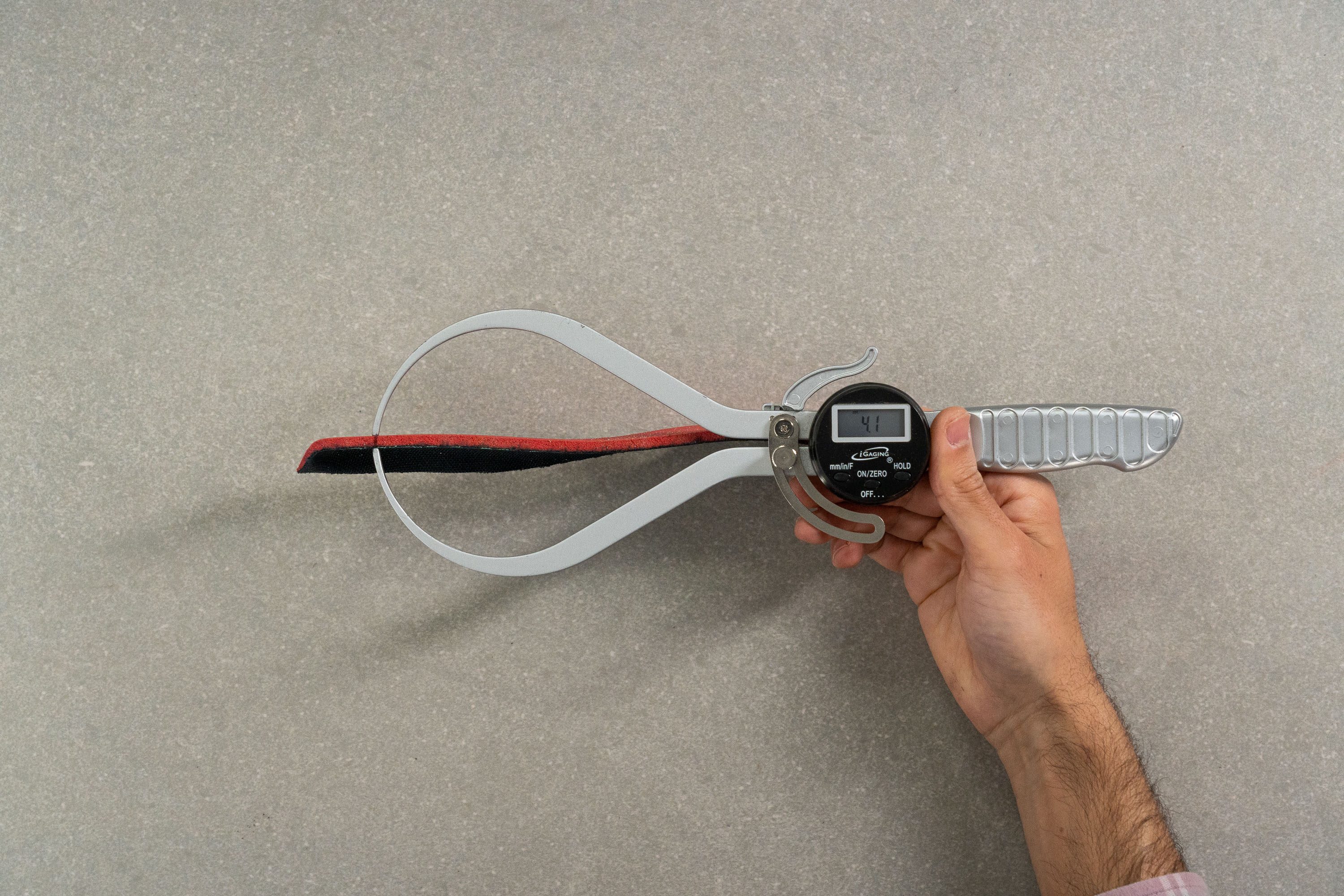
Grip in the Outroad is really good
We believe that the shoe's outsole deserves special praise. It is rugged and durable, and it has a mighty grip on roads, gravel, grass, and most other types of terrains. Moderately technical terrain is not a problem either.
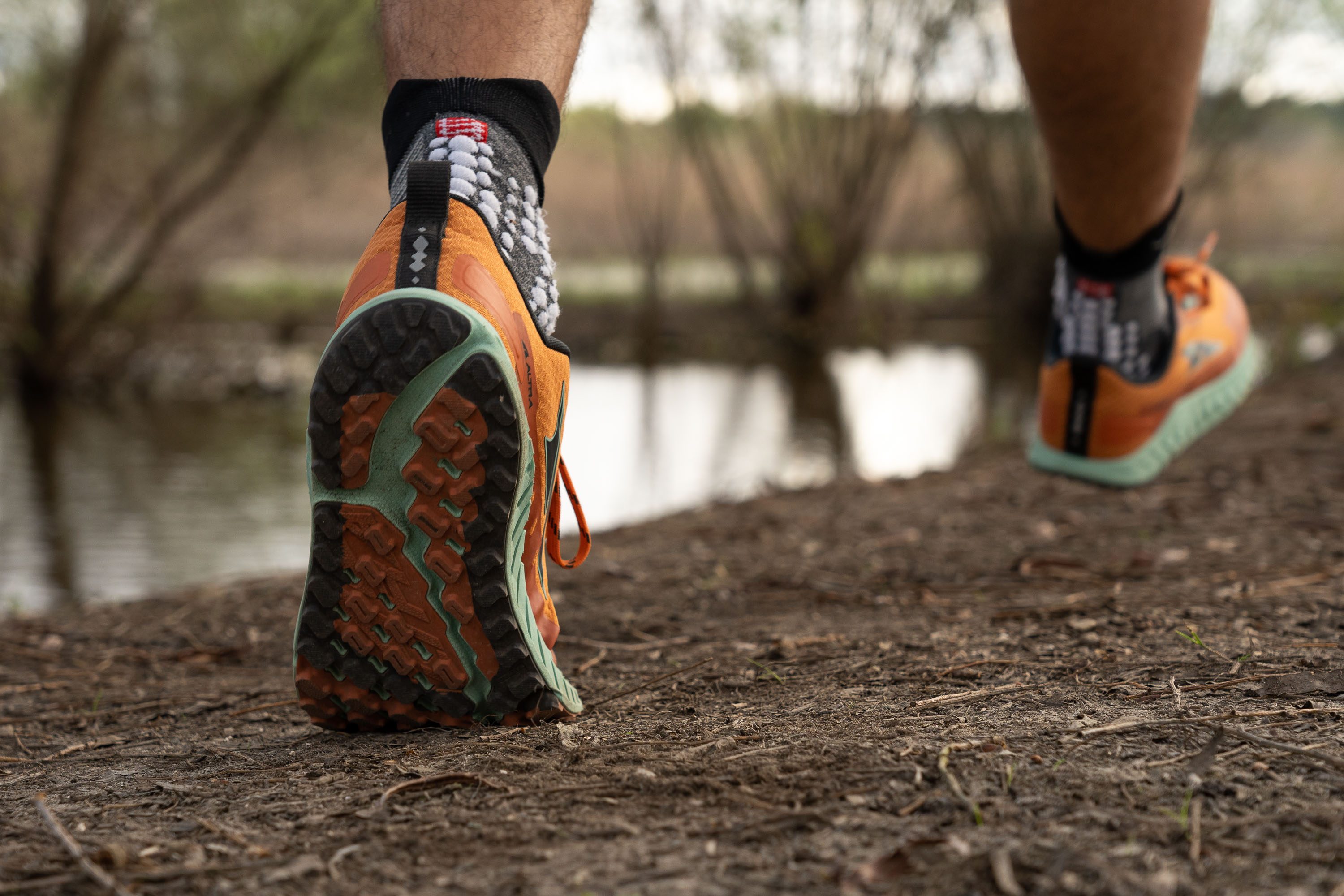
While the average depth for lugs in trail running shoes is 3.5 mm, the Outroad offers 2.3 mm, a measure that's ideal for transitioning from trails to roads.
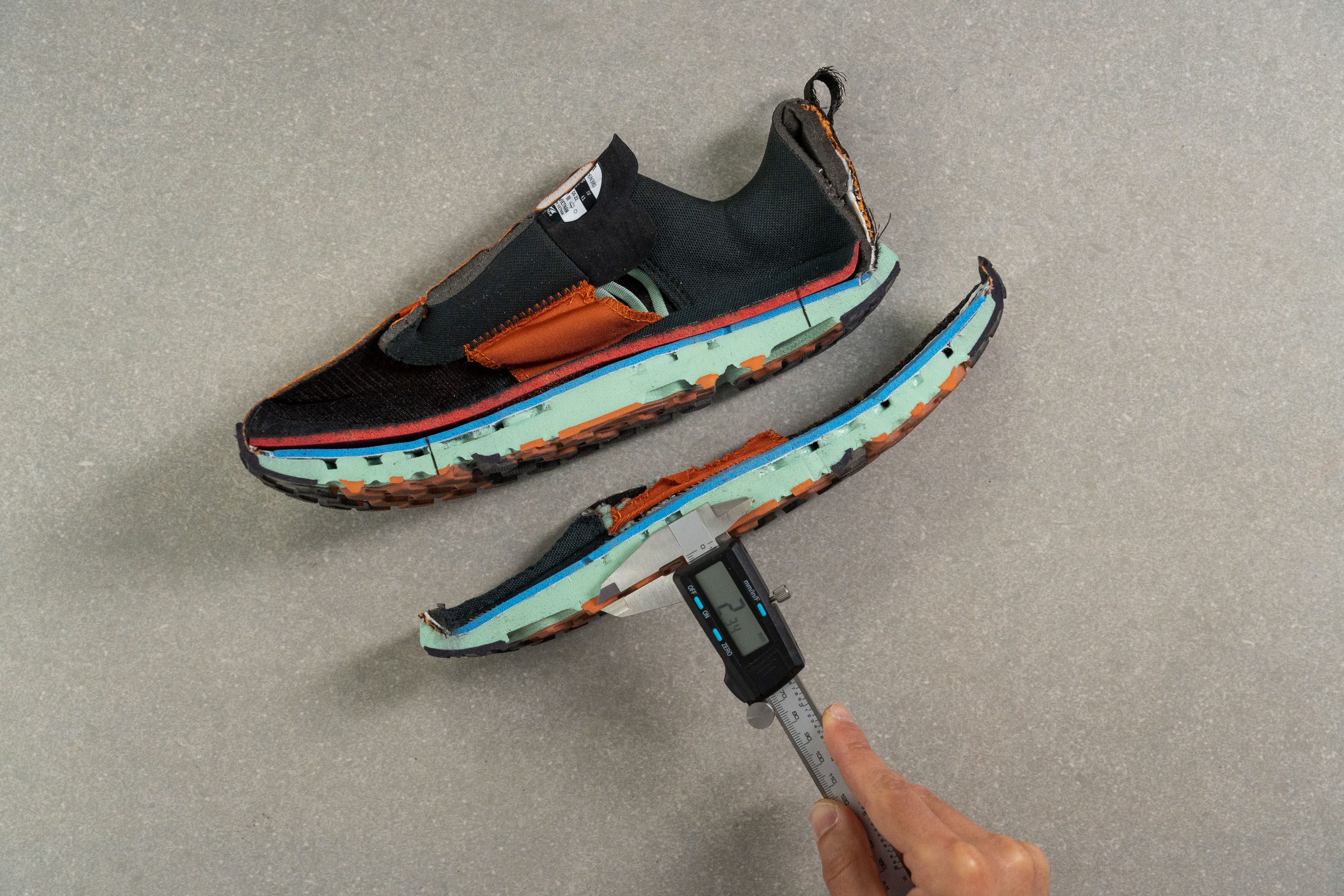
When we tested the outsole with our durometer we found out that the rubber is 2.9% firmer than the average. This can explain the good durability, as harder rubbers tend to be more hard-wearing.
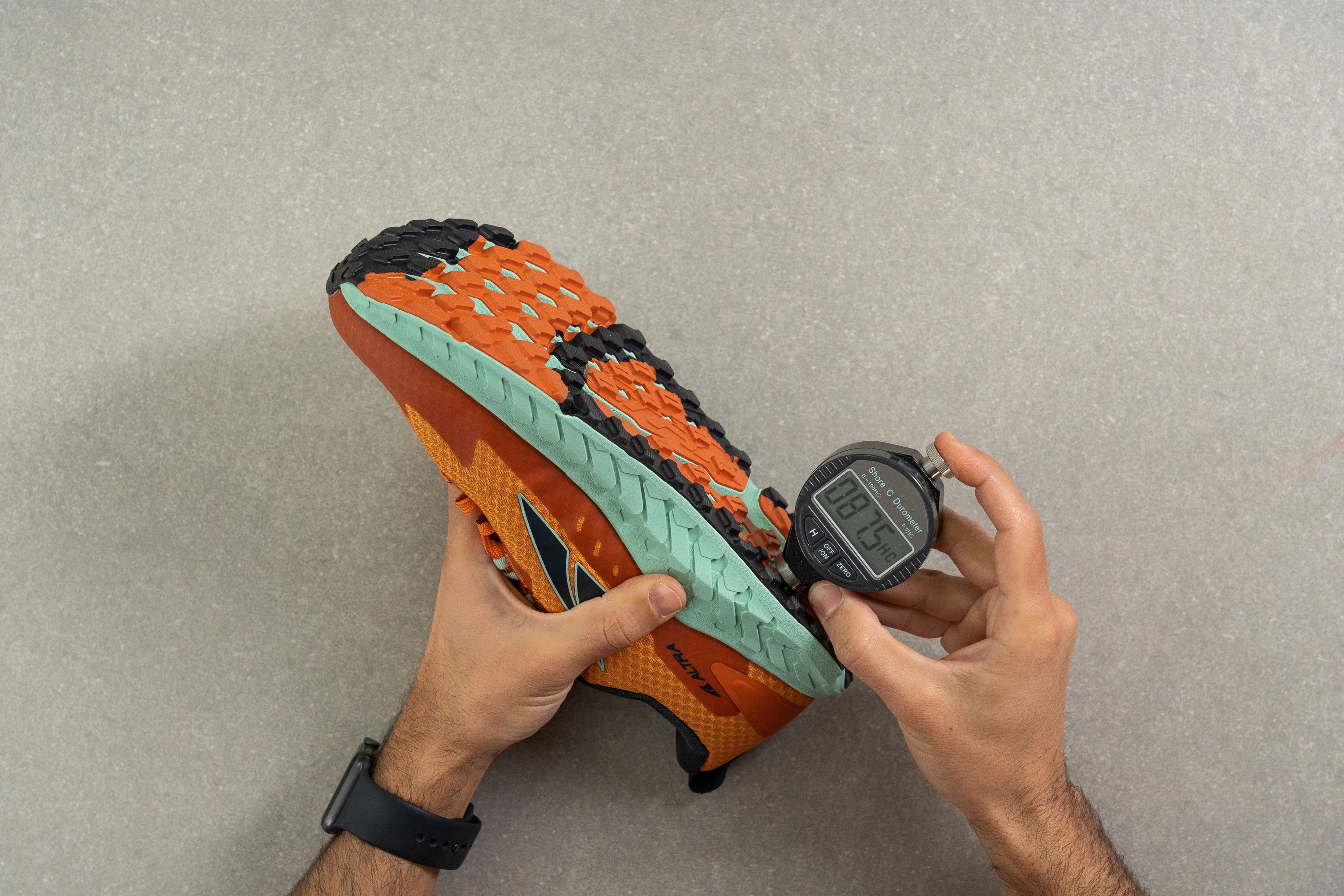
No rubbing, no blisters
This Altra shoe is filled with comfort. There’s plenty of padding on the inside and around the ankle, a nice feel underfoot, and a semi-gusseted tongue that doesn't slide. The shoe remained comfortable all throughout our test runs.
Taking this shoe out on a run straight from the box is not a problem at all!
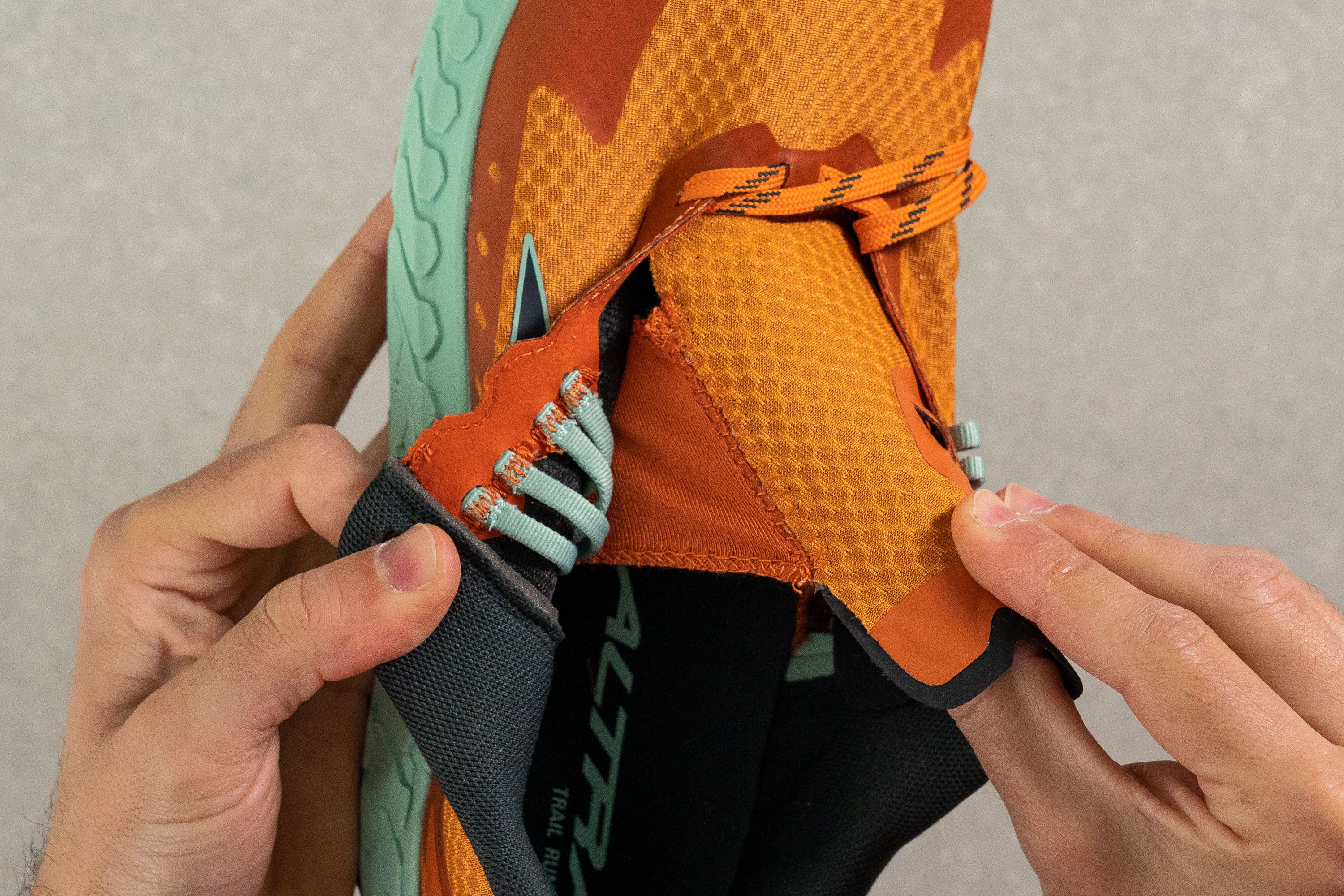
On top of this, contrary to many other trail running shoes, the Outroad has also a pretty flexible upper, particularly the heel counter.
The heel counter scored 2 out of 5 (5 being the stiffest) which is more on the flexible side. Rigid heel counters can provide more support to the foot but can be uncomfortable for some runners. Conversely, a flexible counter like this one provides less guiding for the foot but offers plenty of comfort.
A multi-purpose shoe
With the shoe's perfectly balanced cushioning and moderately deep lugs, it is a perfect all-rounder for various surfaces, even tarmac.
Besides, we found that it can be used for other activities as well. It can make a perfect travel shoe!
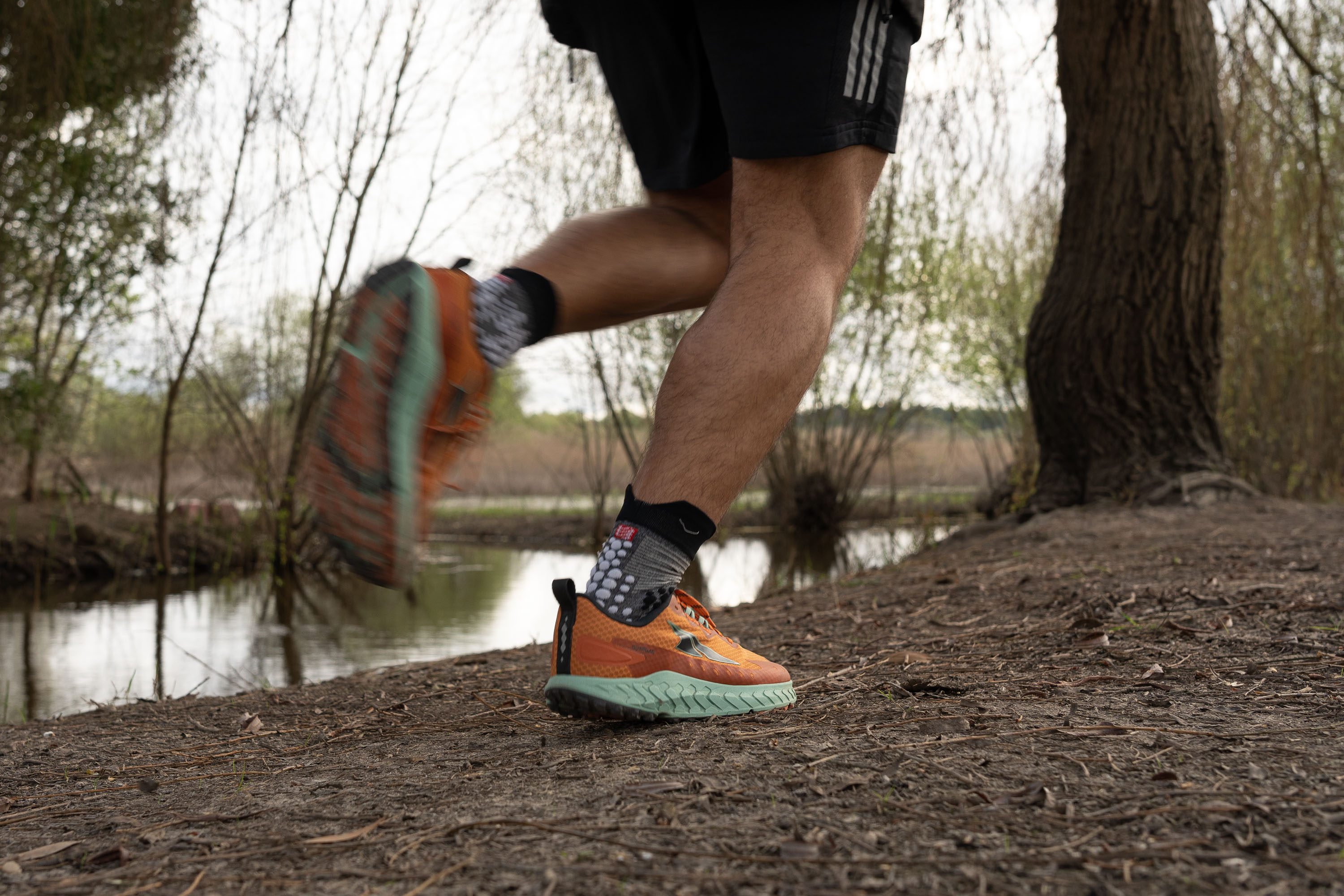
Much more rigid when it's cold outside
According to our tests, the Outroad is moderately flexible. It scored 3 out of 5 (5 being the most rigid) in our manual tests of the shoe's torsional and longitudinal flexibility.
This was also confirmed in our lab, where we measured the flexibility with a digital force gauge. The shoe required 29.1N of force to bend it, which is considered moderately flexible for a trail shoe.
We also put the shoe in the freezer for 20 minutes and found out that when the temperatures go down it becomes 71.3% stiffer. Most trail shoes stay around 43.5%. This means that on a chilly day, the shoe might need some time to regain its flexibility.
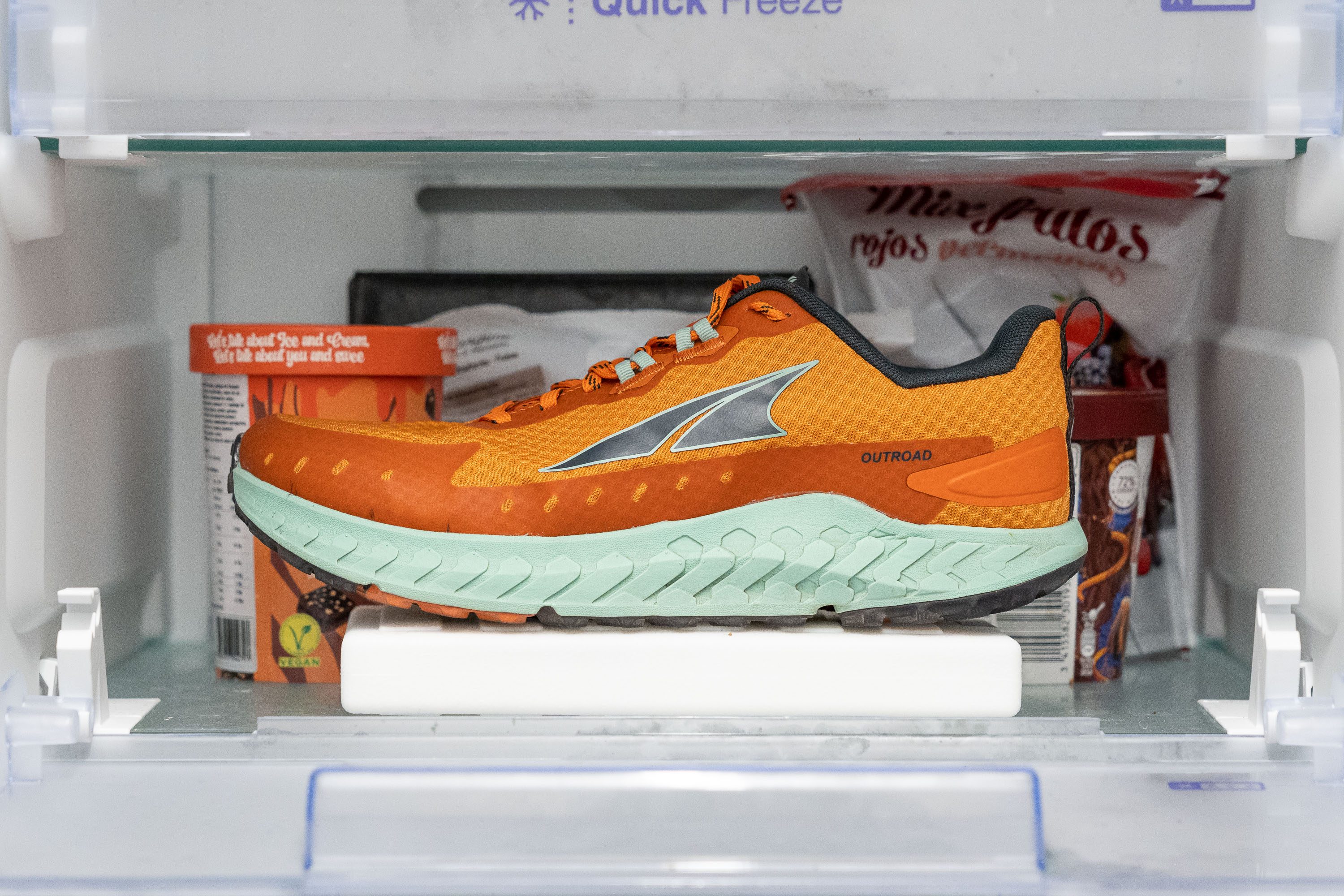
Altra Outroad offers some stability
Stability can be provided by different aspects. In the Outroad, this is provided by the width of the midsole and the low stack height.
In the widest part of the forefoot, the sole measures 111.3 mm (same as the average).
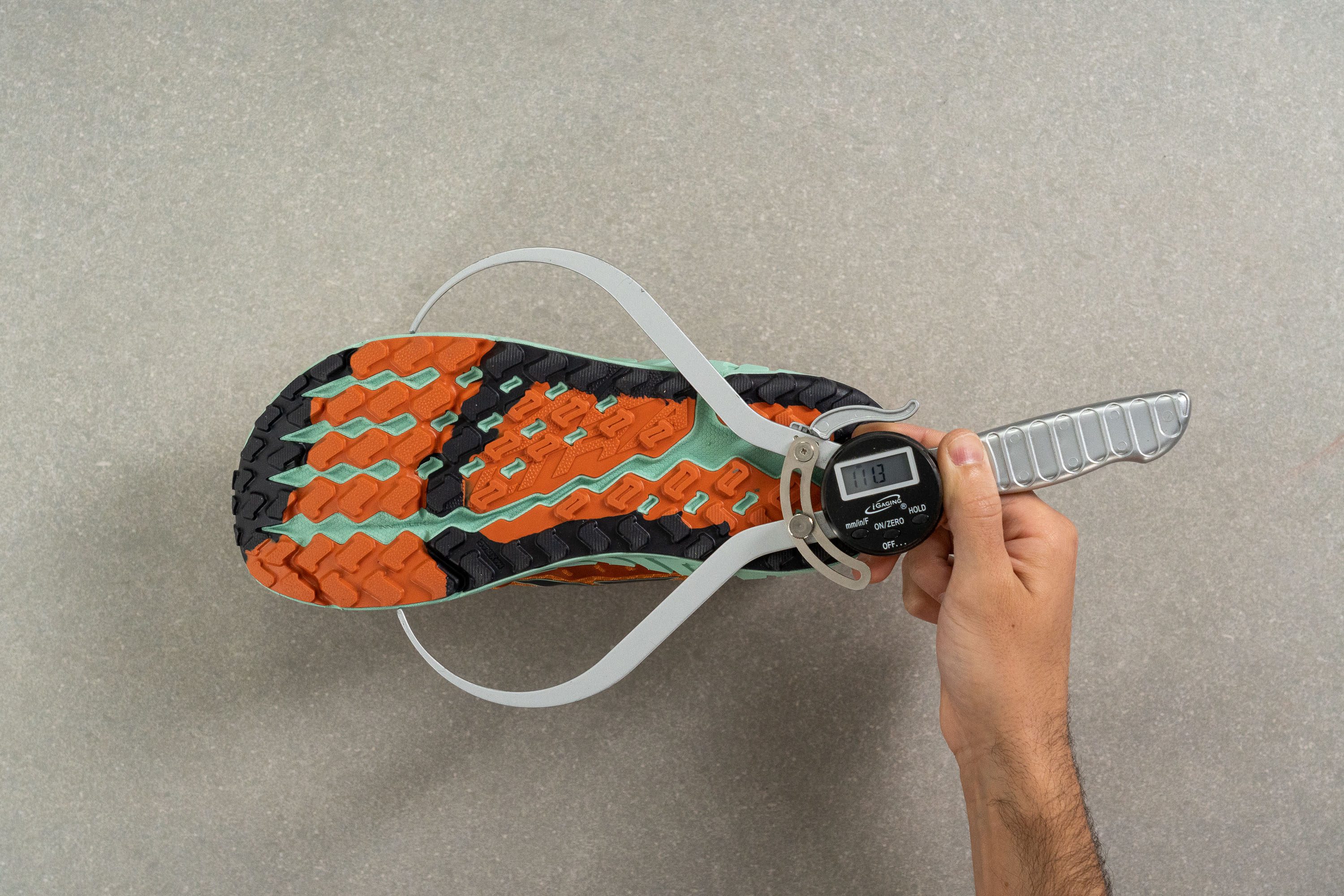
Lighter than what’s on paper
At 10.1 oz (287g), the Altra Outroad is very close to the average weight for a trail running shoe, which is 10.5oz (297g). But we noticed that the shoe does feel a lot lighter on foot and not heavy at all.
Outroad needs some time
While the shoe overall feels comfortable from the get-go, its midsole needs a few miles to be fully broken in. After that, the shoe really starts to shine and shows its full potential.
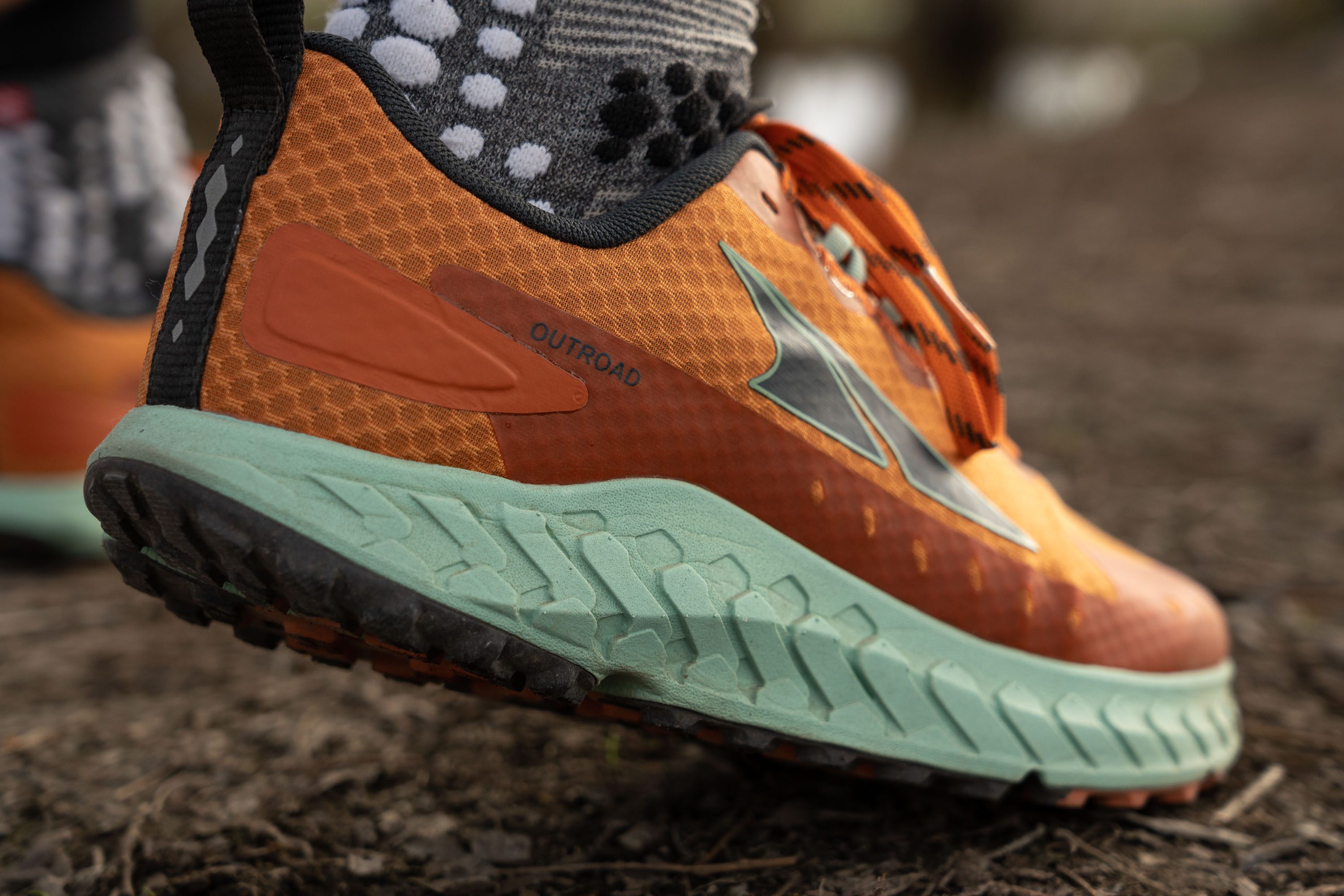
Not boring anymore
We used to express concerns over the visual aspect of some Altra shoes. But this is not the case with the Outroad. It looks very appealing on the foot and is offered in a variety of cool colorways.
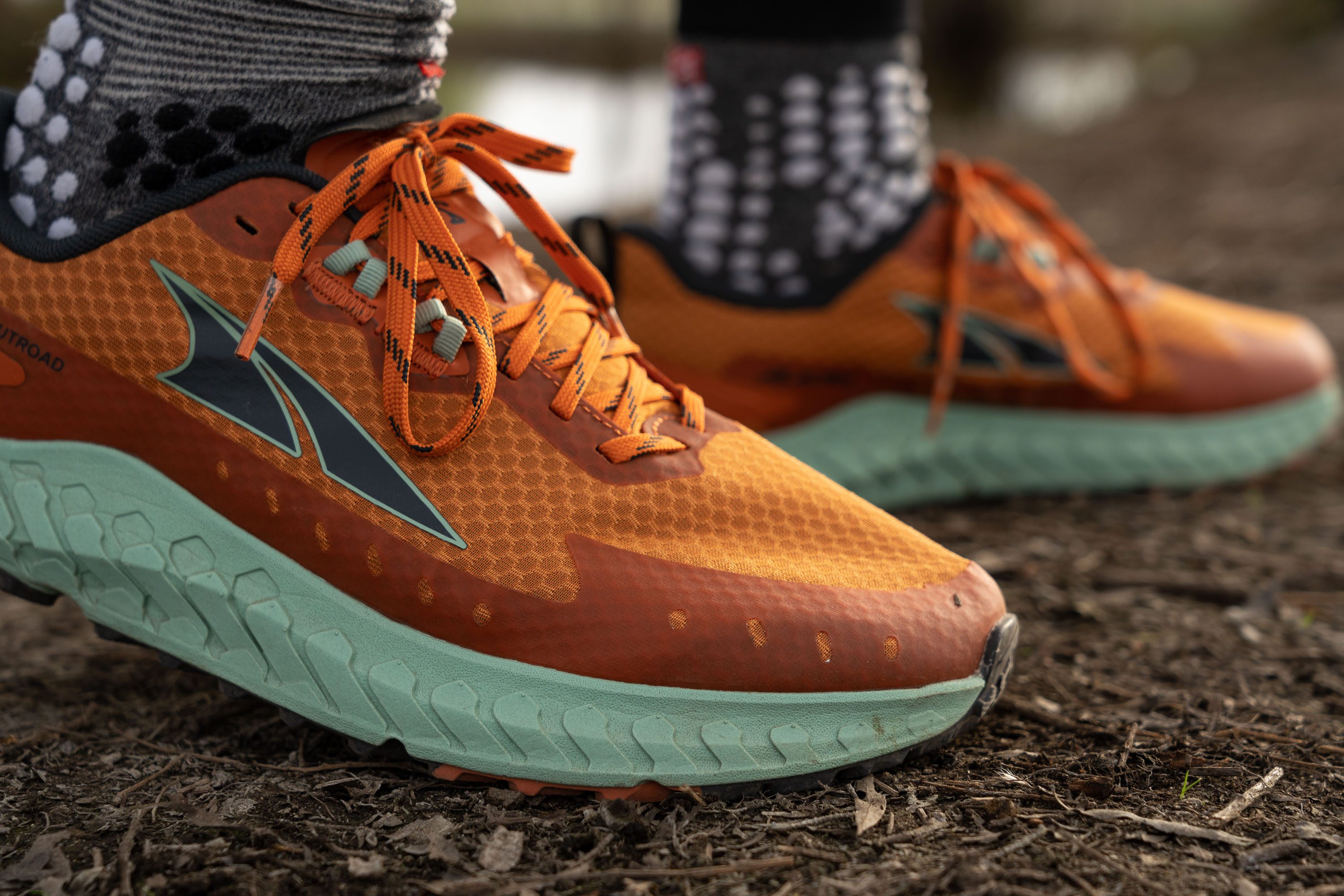
Visible when it gets dark
Though positioned only at the back, the reflective details make the shoe visible at night. This is a feature you usually find only in road shoes, but given that the Outroad is for roads too, it is important to have them.

